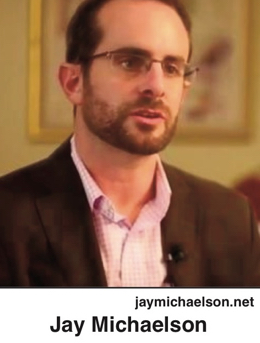Rascals case in brief
In the beginning, in 1989, more than 90 children at the Little Rascals Day Care Center in Edenton, North Carolina, accused a total of 20 adults with 429 instances of sexual abuse over a three-year period. It may have all begun with one parent’s complaint about punishment given her child.
Among the alleged perpetrators: the sheriff and mayor. But prosecutors would charge only Robin Byrum, Darlene Harris, Elizabeth “Betsy” Kelly, Robert “Bob” Kelly, Willard Scott Privott, Shelley Stone and Dawn Wilson – the Edenton 7.
Along with sodomy and beatings, allegations included a baby killed with a handgun, a child being hung upside down from a tree and being set on fire and countless other fantastic incidents involving spaceships, hot air balloons, pirate ships and trained sharks.
By the time prosecutors dropped the last charges in 1997, Little Rascals had become North Carolina’s longest and most costly criminal trial. Prosecutors kept defendants jailed in hopes at least one would turn against their supposed co-conspirators. Remarkably, none did. Another shameful record: Five defendants had to wait longer to face their accusers in court than anyone else in North Carolina history.
Between 1991 and 1997, Ofra Bikel produced three extraordinary episodes on the Little Rascals case for the PBS series “Frontline.” Although “Innocence Lost” did not deter prosecutors, it exposed their tactics and fostered nationwide skepticism and dismay.
With each passing year, the absurdity of the Little Rascals charges has become more obvious. But no admission of error has ever come from prosecutors, police, interviewers or parents. This site is devoted to the issues raised by this case.
On Facebook
Click for earlier Facebook posts archived on this site
Click to go to
Today’s random selection from the Little Rascals Day Care archives….
Click for earlier Facebook posts archived on this site
Click to go to
Today’s random selection from the Little Rascals Day Care archives….
‘Will Edenton be able to heal from this?’
 Aug. 7, 2013
Aug. 7, 2013
“After (the first episode of “Innocence Lost” aired in 1991), letters and phone calls poured into the mayor’s office.
“ ‘Dear Mayor: Thank God I don’t live in Edenton. It’s full of witches…..’
“ ‘Dear Mayor: I suppose since lynching Negroes is verboten, the next best thing is for Southerners to cannibalize each other….’
“John Dowd, Edenton’s mayor at the time, is trying to correct some of the damage done to the town’s reputation….
“Many reporters have wanted to know: ‘Will Edenton be able to heal from this?’ The question is a little too touchy-feely for some residents, too intimate and much too insincere. Dowd replies, ‘Hell, we’ve recovered from the Civil War, from World War II.’ Then, dryly: ‘Yeah, I think we’ll recover from this.’ ”
– From “Little Town of Horrors” by Kathy Dobie in McCall’s (June 1992)
The Civil War, World War II and the Little Rascals Day Care case? The mayor’s resolve was apparent, if not his logic – but that was true for the whole case, wasn’t it?
It’s not mistakes that obstruct justice. It’s the refusal to admit them.
May 21, 2018
“Cops, district attorneys, defense attorneys, and judges make mistakes all the time. Mistakes don’t obstruct justice. Justice is obstructed by refusing to acknowledge and rectify mistakes, and instead doubling down on and repeating them….”
– From “For a small, blue state, Massachusetts wrongfully convicts a lot of people” by George Bullen at 50 States of Blue (Jan. 30)
The prosecution of the Edenton Seven blew through one red light after another, willfully blind to the enormous mistakes it had made and hell-bent on making even more.
![]()
Immunity lets off miscreant prosecutors scot-free
 Aug. 9, 2015
Aug. 9, 2015
“Suppressing evidence, coddling informants, even outright lying are some of the instances of prosecutorial misconduct that sent away nearly half the 1,621 people convicted for crimes they didn’t commit since 1989, according to the University of Michigan Law School’s National Registry of Exonerations. These are only the cases we know about, surely only a small fraction of the wrongly convicted….
“In a 2011 report on 707 such cases, only six prosecutors (none in “satanic ritual abuse” day-care cases) were disciplined. Almost all still have their licenses, and are still practicing law….
“Prosecutors are granted immunity for most kinds of misconduct. It’s easy to see the reasons for this policy: otherwise, every well-heeled convict would sue, clogging the system and making it impossible for prosecutors to do their jobs. At the same time, that immunity is so absolute that prosecutors simply get off scot-free, even when misconduct is established. Even worse, most states lack any meaningful oversight of prosecutors: no commissions, no review boards, nothing.
“America is the only country in which many prosecutors are elected…. The disciplinary commission that sanctioned Mike Nifong – prosecutor of the Duke lacrosse team on false rape charges – noted his upcoming primary election as a motivating factor for his misconduct. The pressure to produce wins has led to a ‘win-at-all-costs’ mentality in some offices, especially when voters reward such behavior.”
– From “It’s Not Just Bad Cops: Prosecutors Run Wild” by Jay Michaelson at the Daily Beast (Aug. 8)
For whatever reason, voters in the First Judicial District declined to “reward such behavior” by Little Rascals prosecutors H. P. Williams Jr. and Nancy Lamb. District Attorney Williams failed to win re-election in 1994, and Lamb lost her bid for DA in 2014.
9/11, Sandy Hook and the McMartin ‘tunnels’
July 1, 2013
I noted last week the continuing unwillingness of law professor John E.B. Myers, widely published authority on child sex abuse, to express an opinion “regarding the guilt or innocence of any of the McMartin defendants.”
In this passage in “Child Protection in America” (2006), which Professor Myers graciously forwarded to me, he justifies his indecision on the case by pointing to claims of secret underground tunnels supposedly discovered (too late!) beneath the McMartin Preschool:
“Several McMartin parents, especially the indefatigable Jackie McGauley, hired an archeologist to excavate under the abandoned preschool. The archeologist conducted an excavation and issued an exhaustive report concluding there probably were tunnels. The tunnels had been backfilled with dirt, but McGauley pointed out that the Buckeys had months to fill in the tunnels after the preschool closed. I read the archeologist’s report and came away convinced. Yet, I shared the report with a colleague who was just as firmly convinced the report proves nothing.”
At the very least, this approach constitutes feckless “research.” To see the tunnel report thoroughly vaporized, Myers needed only to click on “The Dark Truth About the ‘Dark Tunnels of McMartin’ ” by John Earl (1995) or “What Was Under the McMartin Preschool?” by Joseph Wyatt (2002).
When the McMartin parents went digging for nonexistent tunnels, the term “truther” hadn’t yet entered the lexicon. Too bad.











0 CommentsComment on Facebook